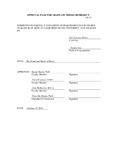

- DSpace Home
- →
- CSULA Digital Repository
- →
- Theses & Dissertations
- →
- Theses
JavaScript is disabled for your browser. Some features of this site may not work without it.
| dc.contributor.author | Belzer, Dan T | en |
| dc.date.accessioned | 2014-02-18T20:14:14Z | en |
| dc.date.available | 2014-02-18T20:14:14Z | en |
| dc.date.issued | 2014-02-18 | en |
| dc.identifier.uri | http://hdl.handle.net/10211.3/116238 | en |
| dc.description.abstract | In this thesis I claim that Henrik Ibsen carefully used sound and music as diegetic detail and thematic enhancement in his realistic prose plays, and that its use over his last two decades of writing reveals increasingly nuanced integration. The importance he gave the aural element--excluding dialogue--marked a critical step in illusionism on stage. Ibsen is often considered the father of modern drama. I contend an important aspect of what is modern about his plays is his innovative use of sound. His masterfully integrated sound delivers emotional content, informs character, and assists in advancing plot as none before him had achieved. Similarly, Ibsen employed music in a manner that illustrates the influence of melodramas, yet in a departure from this form, he integrated it realistically. His skillful inclusion of music demonstrates understanding of the emotional power of music and its ability to assist in supporting and advancing plot. | en |
| dc.title | The sound and music of Ibsen | en |
| dc.date.updated | 2014-02-18T20:14:14Z | en |
| dc.language.rfc3066 | English | en |
Files in this item
This item appears in the following Collection(s)
-
Theses [3536]
